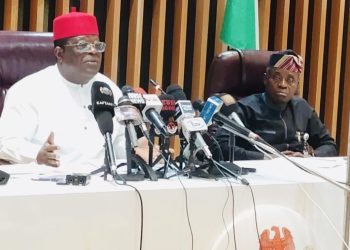By Nkechi Eze
The Nigeria Customs Service (NCS) has confirmed receipt of a directive from the Federal Ministry of Finance ordering the suspension of the implementation of the 4% Free-on-Board (FOB) charge on imported goods, assuring stakeholders that operations will continue smoothly despite the suspension.
In a statement signed by the National Public Relations Officer, Assistant Comptroller of Customs Abdullahi Maiwada, the Service said it appreciates the Ministry’s engagement on the matter and remains committed to supporting government fiscal policies while ensuring efficient customs administration.
Maiwada explained that, following the directive, the NCS has commenced immediate consultations with its supervisory ministry to seek guidance on alternative measures during the suspension period. According to him, this move is necessary to guarantee continuity in service delivery to the trading public, licensed customs agents, and other stakeholders.
The statement noted that discussions with the Federal Ministry of Finance and other relevant stakeholders are ongoing, and the NCS remains optimistic that these engagements will address the concerns raised while safeguarding the Service’s statutory obligations. “We look forward to constructive engagement that will ultimately serve the best interests of the Federal Republic of Nigeria, enhance revenue generation, and support the nation’s economic growth objectives through efficient customs administration,” the statement read.
The Service also addressed what it described as misleading reports in the media suggesting that the 4% FOB charge was a recent introduction by the NCS. For clarity, it pointed out that the provision was established by the National Assembly through Section 18(1)(a) of the Nigeria Customs Service Act, 2023, which stipulates “not less than 4% of the free-on-board value of imports according to international best practices” as a statutory funding mechanism for Customs operations.
Assuring all stakeholders of continued service delivery, the NCS pledged to maintain operational efficiency, uphold international best practices, and sustain its role in revenue generation and trade facilitation. “We remain firmly committed to delivering efficient service, upholding international best practices, and supporting Nigeria’s economic growth through effective revenue collection and enhanced trade facilitation,” the Service stated.

















